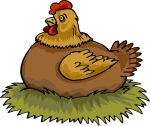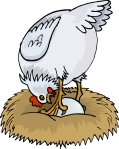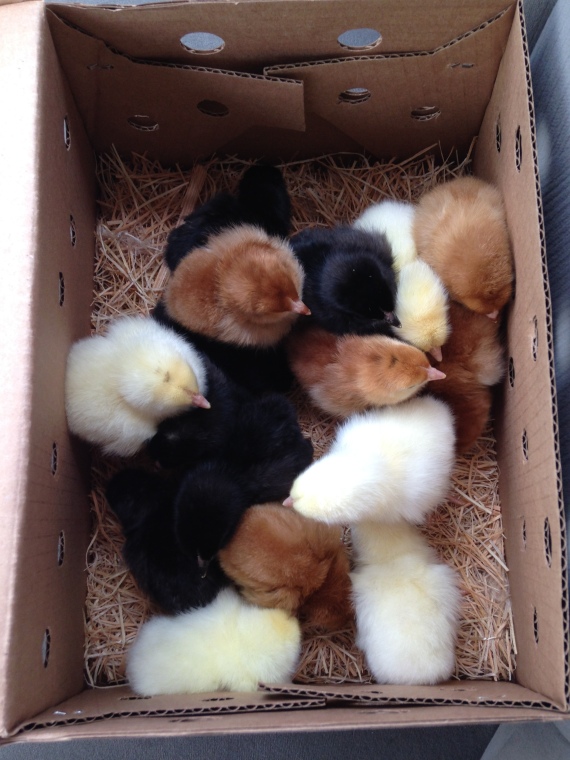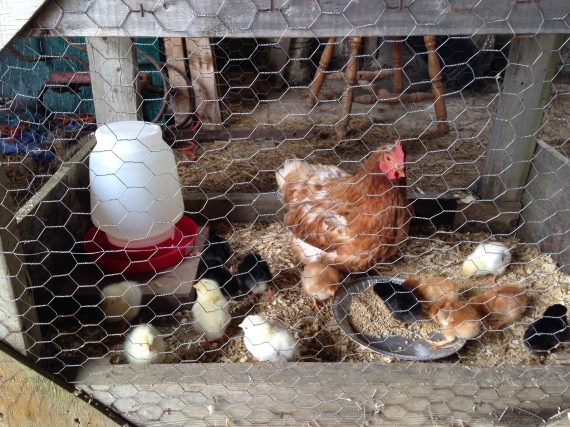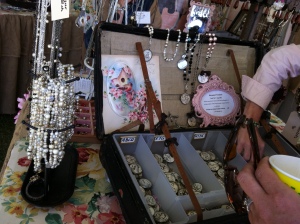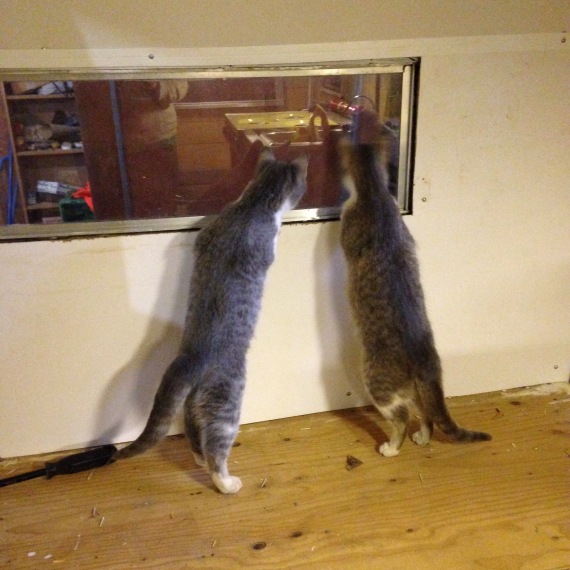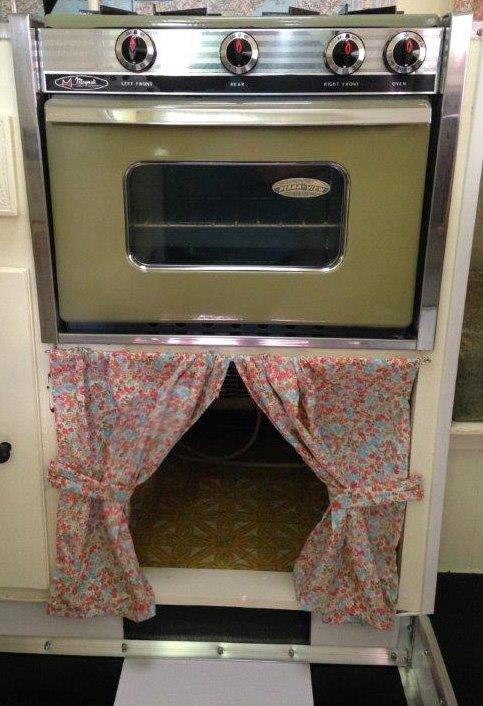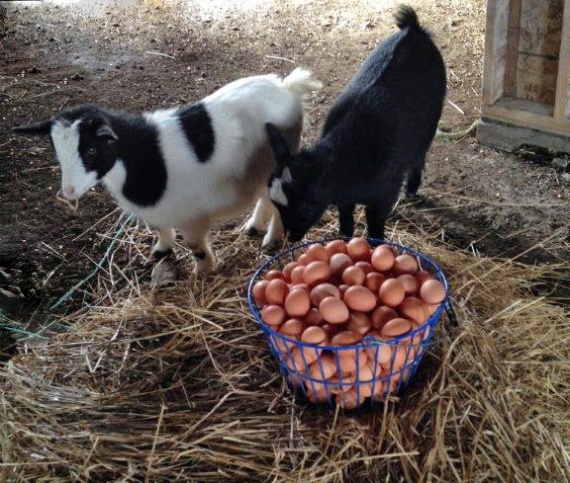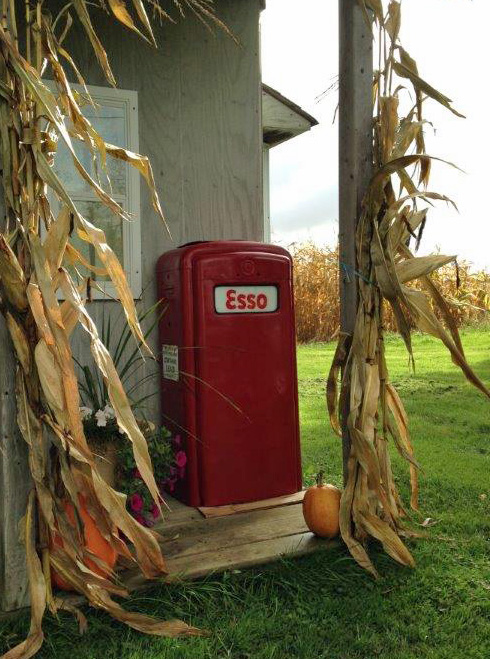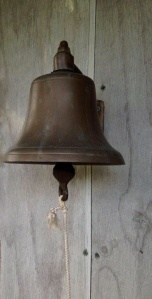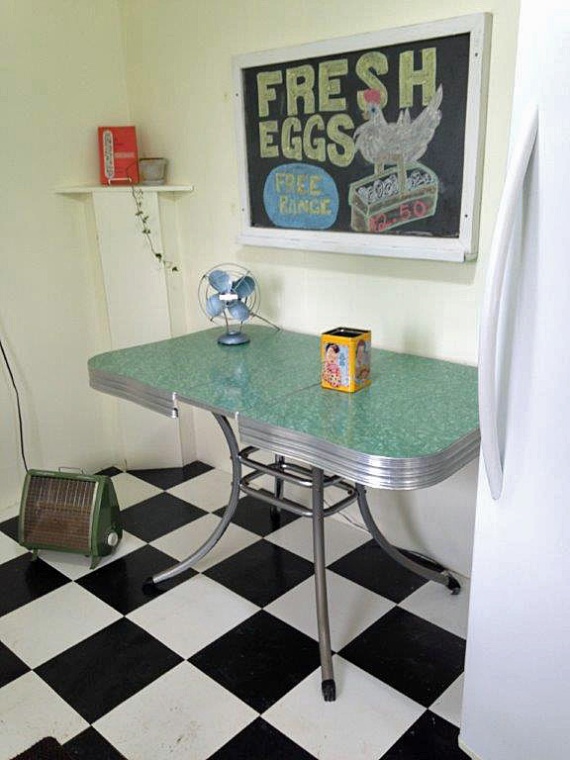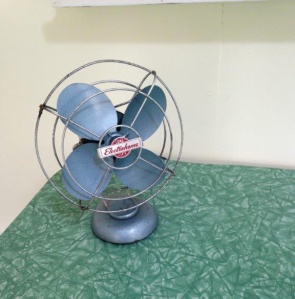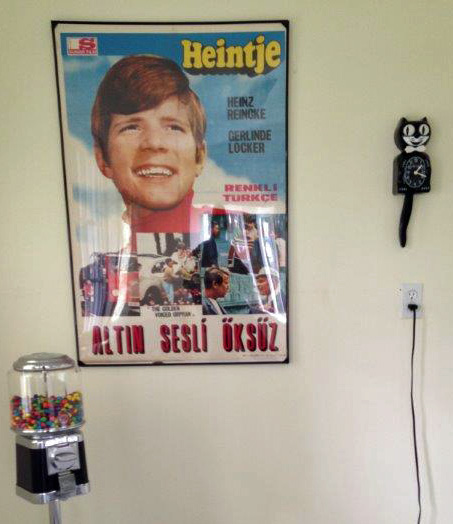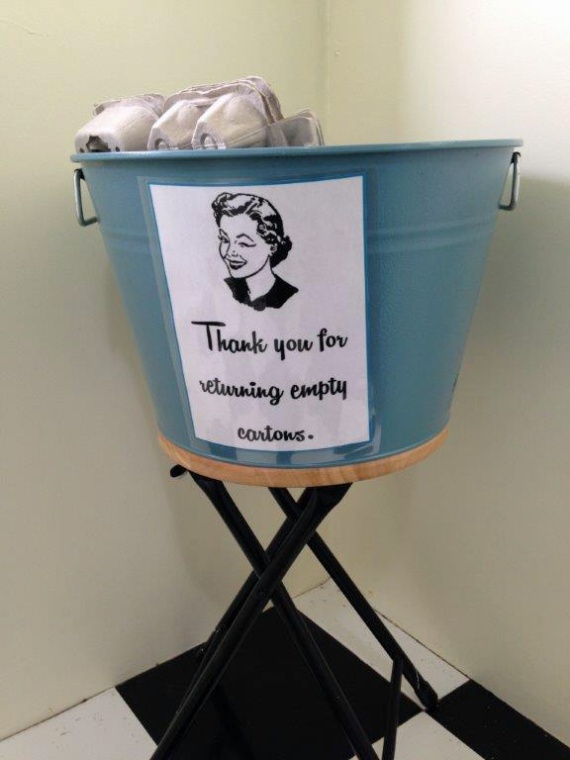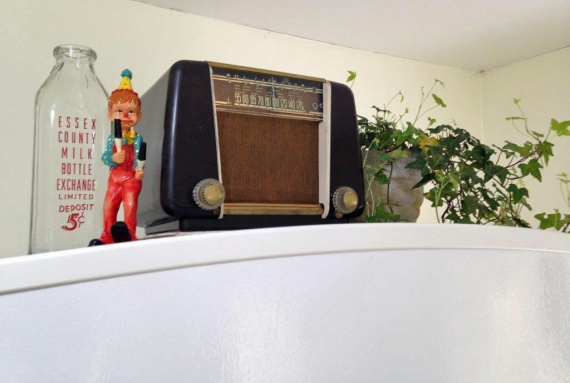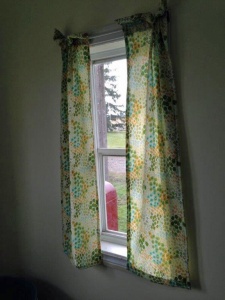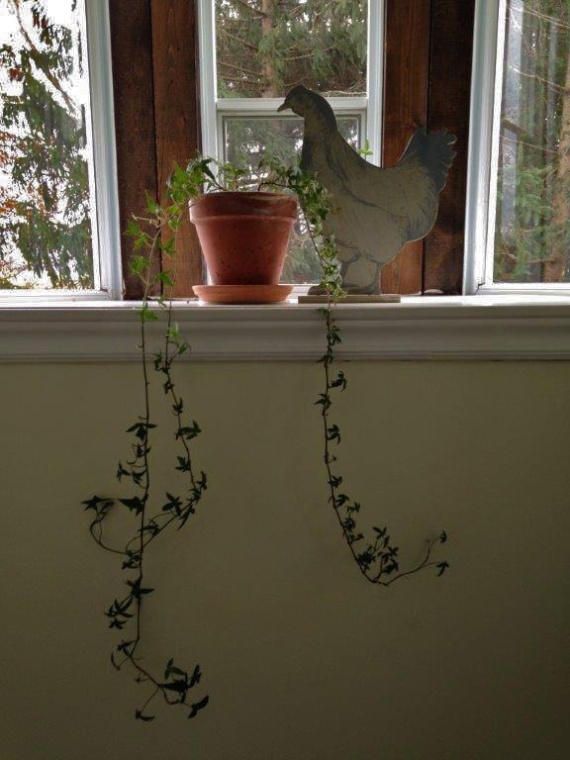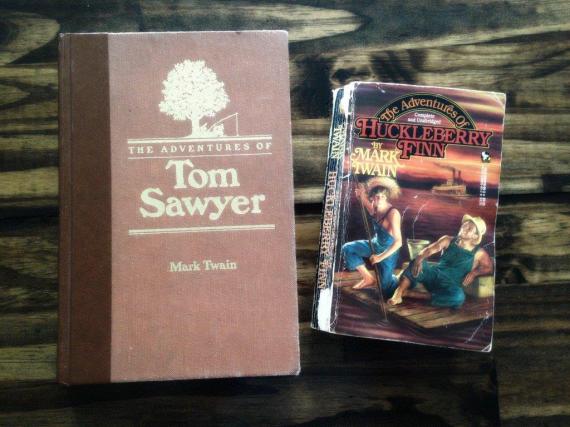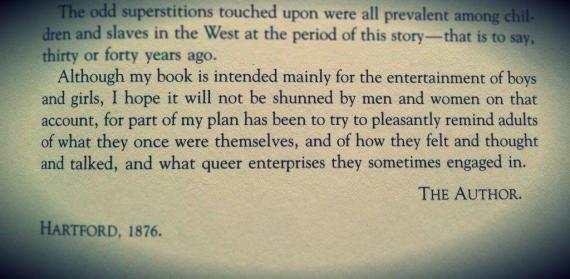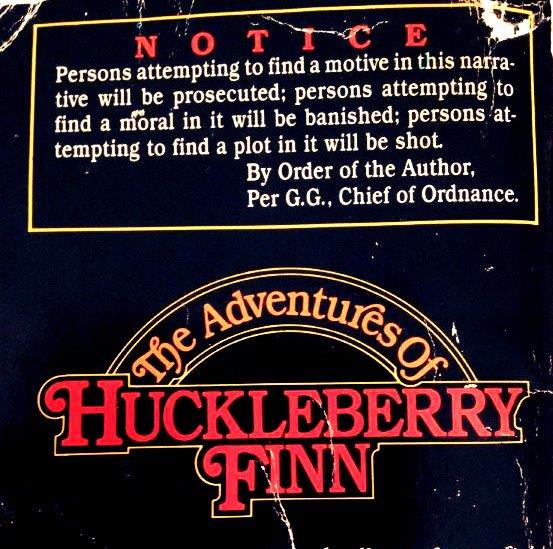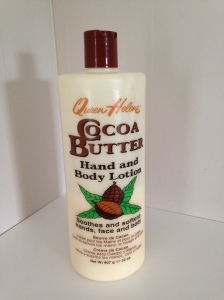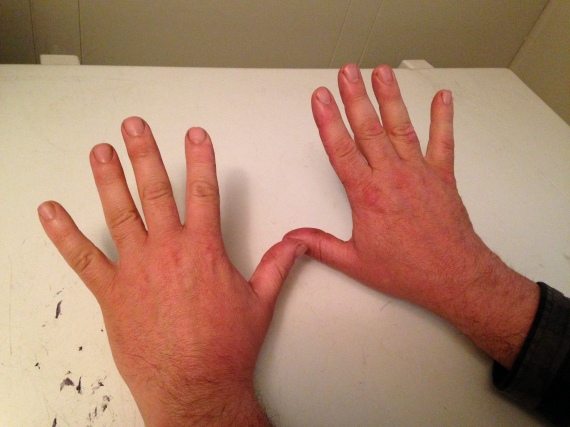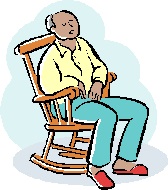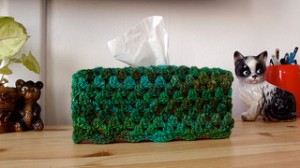Knowing how to speak both English and Low German is a wonderful thing. Perhaps you are newly immigrated to Canada from an Old Colony Mennonite Darp in Mexico and exploring the vast new world of English words open to you, like, “Large-says me dat hemberje.” Or like me, you have grown up in Canada speaking Low German, but your syntax and word choices are just awkward enough to make aunts and uncles smile behind their Schneppeldäka.* Either way, your possibilities for expression and meaningful conversation are double. There are just a few pitfalls to watch out for as you practice.
If you are new to Canada, complications can arise when neighbouring in English. Like anyone learning the language, you may use the wrong syntax and words that don’t translate your meaning perfectly into English. In comparing the ease of  housekeeping today with that of her childhood, Groossmama might say, “From the dishwasher had yet no one heard”, leading her grandchildren to think that the dishwasher was apt to shrug into a summer cardi and leave the house without telling anyone when it would be back.
housekeeping today with that of her childhood, Groossmama might say, “From the dishwasher had yet no one heard”, leading her grandchildren to think that the dishwasher was apt to shrug into a summer cardi and leave the house without telling anyone when it would be back.
Albert’s colleague Barry found himself in a similar conversation. Only a month ago, he moved from a busy city into the country. One day, Barry arrived home after a heavy snowfall to find that his Mennonite neighbour, Henry, had thoughtfully cleaned his driveway. When Barry offered to pay him, Henry refused, saying, “It’s free… I see you work out.” Someone less intuitive than Barry might have feared that Henry was making an inappropriate advance toward them. Fortunately, Barry realized that Henry was explaining that he observed that Barry’s job requires him to be away throughout the day, so he cleaned Barry’s driveway as an act of (platonic) friendship.
But you may run into trouble even when you have become fluently bilingual. Having choices means you will be prone to flip from one language to the other in search of the best words to express what you’re trying to say. Your listener may also be bilingual, but if you have led the conversation thus far in English, your conversation partner is listening in English. A sudden switch to Low German may leave them as confused as if they’ve just heard a completely foreign language. Observe the following conversation between Aggie and Margaretha.
Aggie: I totally need new makeup. This liquid powder mattifying foundation looks terrible on my face.
Margaretha: (nods sympathetically) My gecko’s skin is less flaky.
Aggie: What should I do?
Margaretha: Your Stella McCartney leggings will totally take the focus off your face. Just go for your run au naturel.
Aggie: I can’t. I just know I’ll run into Corny at the park. He’s just moved into the building and he is soooooo GQ.
Margaretha: Well, Sephora is having a sale today. You just have to spend a hundred dollars on lip liner and –
Aggie: JAUMA NOCH EENT!** (jumps to her feet and grabs her purse) Te’waut sädst mie daut nicht tom easchten plauts?***
Margaretha: What?
Aggie: Waut?
To complicate matters even more, the confusion around language isn’t limited to English or Low German-speaking people. It extends to their animals as well. One day, I saw a cat crossing our neighbour Bob’s yard. It was walking toward his chicken barn. I knew it didn’t belong to Bob and being fond of cats, I stopped to talk to it.
“Here kitty kitty kitty.” The cat didn’t stop, slow down or even indicate that it heard me. I called again, “Here kitty kitty kitty.” The cat didn’t even flick an ear; so strong was the lure of untapped mouse holes in Bob’s chicken barn. On a hunch I called out, “Miets miets miets miets.” Sure enough, the cat halted in its tracks and turned to give me its full attention. I had guessed right. The cat was German.
Still, it’s hard not to be miffed when someone has ignored you, even if they can explain it away with a language barrier. There was no one else I could have been talking to and the cat knew it. I lifted my chin and walked toward the house, satisfied with knowing that he was staring after me in wonderment. 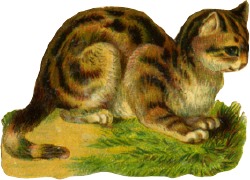
I know the look well. I get it every time a Low German speaker with limited English hears me speak Low German for the first time. When they recover, they typically respond in English to show me how sophisticated they are. To which I answer in Low German with a broad smile and we’re both of us impressed, with ourselves at the very least.
The exception to this occurred one day when I pulled into a parking space by myself at McDonald’s in Aylmer. A moment later, a full-sized van pulled up beside me. A lady I’d never seen before rolled down the window and without hesitation, asked me in Low German where the Old Colony church was where a funeral was to be held that day. What could I do but tell her to head east and turn linjsch**** on Dingle Street? A smile, a “Dankscheen” and the van sped away with the last vestiges of my Canadian-born pride. Which leads me to one last point before sending you out to practice your English & Low German skills, and it’s true whether you’ve just arrived in Canada or you’ve lived here all your life: Store-bought clothes and Canadian airs might fool some people but you will never escape who you really are. It’s best not to try.
*handkerchiefs
**an exclamation which translated literally is, “Pity yet one”. This sounds nonsensical in English but when uttered in surprise or dismay, its meaning is unmistakable.
***”Why didn’t you tell me that in the first place?”
****left



